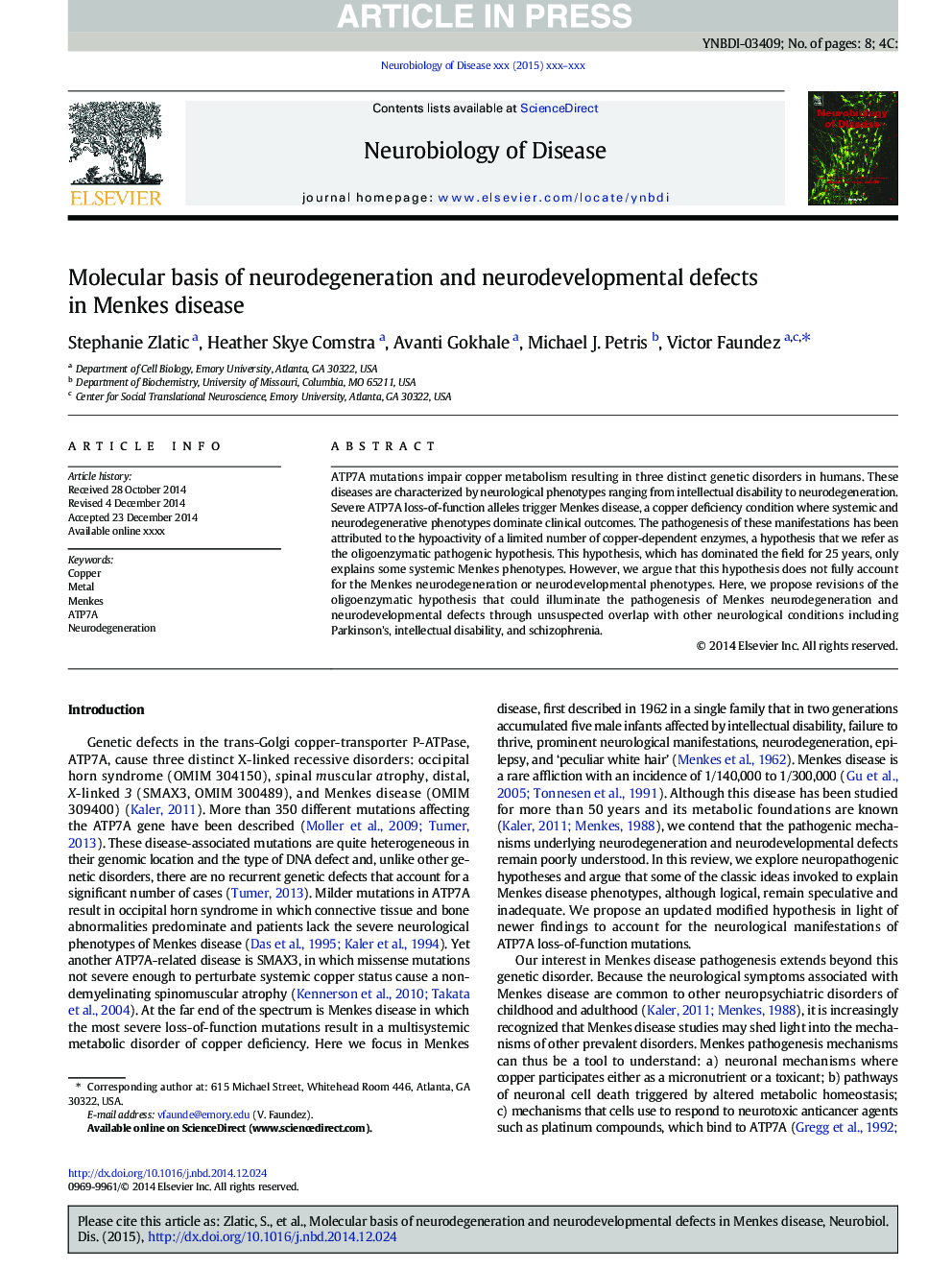| Article ID | Journal | Published Year | Pages | File Type |
|---|---|---|---|---|
| 6021486 | Neurobiology of Disease | 2015 | 8 Pages |
Abstract
ATP7A mutations impair copper metabolism resulting in three distinct genetic disorders in humans. These diseases are characterized by neurological phenotypes ranging from intellectual disability to neurodegeneration. Severe ATP7A loss-of-function alleles trigger Menkes disease, a copper deficiency condition where systemic and neurodegenerative phenotypes dominate clinical outcomes. The pathogenesis of these manifestations has been attributed to the hypoactivity of a limited number of copper-dependent enzymes, a hypothesis that we refer as the oligoenzymatic pathogenic hypothesis. This hypothesis, which has dominated the field for 25Â years, only explains some systemic Menkes phenotypes. However, we argue that this hypothesis does not fully account for the Menkes neurodegeneration or neurodevelopmental phenotypes. Here, we propose revisions of the oligoenzymatic hypothesis that could illuminate the pathogenesis of Menkes neurodegeneration and neurodevelopmental defects through unsuspected overlap with other neurological conditions including Parkinson's, intellectual disability, and schizophrenia.
Related Topics
Life Sciences
Neuroscience
Neurology
Authors
Stephanie Zlatic, Heather Skye Comstra, Avanti Gokhale, Michael J. Petris, Victor Faundez,
